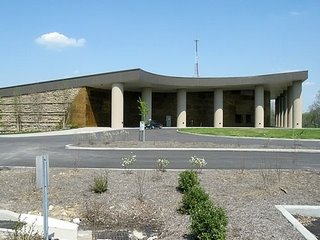In addition to the issue of saving money in order to waste it elsewhere, there is the problem of wasting time in order to save money. A few days ago, shortly after buying the textbook for one of my classes this semester, I discovered that I could have saved about $6.50 by buying it elsewhere. My thoughts upon realizing this resembled the following: Bummer. Well, it's not a huge difference on an eighty dollar book. Then again, $6.50 is $6.50. If I'd spent $6.50 on a few ice cream cones and dropped them on the sidewalk, I'd feel I lost it for nothing.The book is returnable, and I might return it to buy it at the lower price--a minor hassle, considering I could be going back anyway--but thinking about it made me wonder, what makes it worth it to take the extra time to save money? And how do we know when, in our attempts to save money, we are instead wasting time?First there are obvious cases: the "big ticket" items such as houses and cars. A wise person will spend the necessary time to investigate different options, compare costs and benefits, and make an informed decision. But what about smaller things? It's obvious that it's important to shop around for the best price on cars; it's obvious that it's much less important to shop around for the best price on apples; but what about the stuff in between, like books or electronics?Now, I realize that with the internet it is possible to compare a lot of prices online. But this is not always possible. At such times, you must ask yourself whether it's worthwhile to go to two or three different stores to discover where you can save a few dollars.The first question to ask, I think, is whether your time would be better spent elsewhere. If you're supposed to run to the store to buy some more soft drinks before the cookout begins, it's probably better to pay a little extra at the convenience store and return to help around the house than to drive an extra twenty minutes to save money at the superstore. I'm sure you could come up with plenty of other, better examples, but I think you can understand my point.But if there is nothing else in particular that we should be doing? Like me, you've probably heard (without having any idea where) the saying, "Time is money." Materialists may intend it to mean that time is to be turned into money. In my opinion, however, this saying points out the willingness that even--or especially--the frugal may have to waste time.
So when is it worthwhile to spend an extra thirty minutes to go to another store? Remember that other saying, "A penny saved is a penny earned"? (Actually, taking taxes into account. . . never mind.) Here is my theory: if you're saving less money hourly than you make hourly, it's probably not worth your time. Because that probably didn't make a lot of sense, I'll give an example. The items on a certain grocery list can be purchased at the SuperCenter for $120. The shopping takes one hour. The same groceries can be purchased for a total of $100 if one goes to five different stores scattered across town. To do this, however, would take three hours. To a person earning $8/hour, saving twenty dollars in two hours would be well worth it. The same may not be true, however, for a person earning $20/hour.
Let me clarify a few things. First, I don't believe that we can categorically put a quantifiable value on time. If this were so, it would never be worthwhile for us to have non business-related conversations. If, however, the time in question would be spent trying to save money, this way of thinking might be useful.
Second, just as we must ask ourselves who our money belongs to, so too we must also ask ourselves Who our time belongs to. One person, in best stewarding his time and money, may spend more time saving money, while another may spend more money saving time. I'm curious to hear what others think. And yes, I admit to often being way too analytical.
Labels: ponderings









